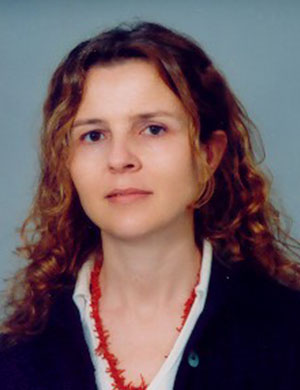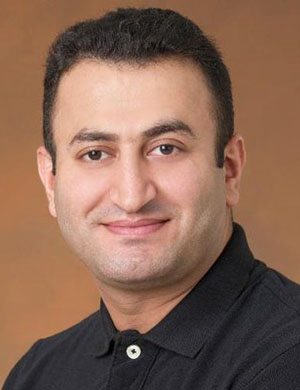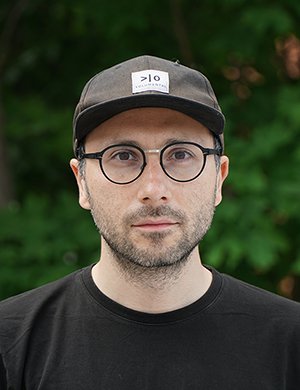Invited Speakers
Işıl H. Bozma

Robotlarda Görünüş Temelli Uzamsal Biliş
Prof. Dr. Işıl H. Bozma, Boğaziçi Üniversitesi
27 Haziran 2019 Perşembe - 9:30-10:30
410 (Oditoryum)
Özet:
Robotlarda uzamsal biliş, bulunulan ortamlarla ilgili olarak mümkün olduğunca kapsamlı olarak muhakame yapabilmeyi amaçlamaktadır. Dolayısıyla, otonom olabilmek için son derece önemli bir özelliktir. Böylece, robotlar, kendi başlarına güvenilir bir şekilde hareket ederek verilen görevleri yapabilmeleri ve etrafları ile daha rahatça etkileşimde bulunabilmeleri için gerekli uzamsal farkındalığı oluşturulabilirler. Bilindiği üzere, uzamsal biliş biyolojik sistemler açısından son derece karmaşık bir özellik olarak tanımlanmaktadır. Sistemsel açıdan incelendiğinde, uzamsal bilgilerin temin edilmesi, organize bir şekilde saklanılması, gerektiğinde kullanılması ve gerektiğinde de güncellenmesi gibi işlemlerin hem tek başına, hem de birbirleriyle bağlantılı olarak çalışmasını gerektirmektedir. Bu çerçevede, görünüşe ait bilgiler çok büyük bir rol oynamaktadır – zira metrik verilerin mevcut/güvenilir olmadığı veya kullanılmaları için gerekli hesapsal karmaşıklığın çok fazla olduğu çok durum olabilmektedir. Bu konuşmada, görünüş temelli uzamsal bilişe yönelik olarak, bu işlemlerin oluşturulmasına temel oluşturan mekansal tanımlama ve öğrenme, haritalama, konumlama, bakarak ve hareket ederek ortam keşfi ve bilgi tümleşimi gibi ileri seviye yetiler üzerinde durulacak ve bunların oluşturulmasına yönelik olarak geliştirdiğimiz yaklaşımlardan bahsedilecektir.
Biyografi:
H. Işıl Bozma Boğaziçi Üniversitesi Elektrik-Elektronik Mühendisliği Bölümünde profesör olarak görev yapmaktadır. Lisans derecesini 1983 yılında Boğaziçi Üniversitesi Elektrik-Elektronik Mühendisliği Bölümü’nde aldı. Yüksek lisans derecelerini, sırasıyla Amerika Birleşik Devletleri’nde bulunan Case Western Reserve Universitesi Elektrik Mühendislği Bölümü’nde 1985 yılında, Yale Universitesi Elektrik Mühendisliği Bölümünde 1986 yılında, doktora derecesini Yale Üniversitesi Elektrik Mühendisliği Bölümü’nde 1992 yılında tamamladı. Halen bulunduğu bölümde, yardımcı doçent olarak çalışmaya başladıktan sonra, 1996 yılında Akıllı Sistemler Laboratuvarını kurulmasında çalıştı ve kuruluşundan itibaren bu laboratuvarın yöneticisi olarak görev aldı. 1994 - 2000 yılları arasında, University of Michigan Ann Arbor’da ve 2000 - 2007 yılları arasında da University of Pennsylvania’da misafir araştırmacı olarak araştırmalarda bulundu. Ödülleri içinde 2004 TESID Yenilikçilik ödülü, 2015 ICAR En iyi Özgün Makale ödülü bulunmaktadır. Dr. Bozma’nın araştırmaları, uzamsal biliş ve ortam anlamlandırma, çoklu robotlar ve kooperasyon ve oyun kuramı konularını kapsamaktadır. Uluslararası etkin dergi ve konferanslarda yayınlanmış çok sayıda yayını bulunmaktadır.
Oktay Arslan

Gerçek Dünya Uygulamaları için Otonom Araç Geliştirmenin Zorlukları
Dr. Oktay Arslan
27 Haziran 2019 Perşembe - 14:00-15:00
410 (Oditoryum)
Özet:
Günümüzde otonomi yeni gelişen bir disiplin olarak günlük yaşamın pek çok alanında yaygınlaşmaya başlamıştır. Bugünün toplumu, insanlarla etkileşime giren otonom araçların kullanımına doğru hızla ilerlemektedir. Birçok farklı uygulama için tasarlanan ve çeşitli yeteneklere sahip olan bu otonom araçların (insansız hava sistemleri, uzay robotları, sürücüsüz arabalar vb) geliştirilmesinde önemli ilerlemelere şahit oluyoruz. Bu sistemlerin güvenlik açısından kritik niteliğinde olması, bazen performans açısından en iyisi olmayan fakat basit, anlaşılır ve test edilmesi kolay algoritmaların ve metotların tercih etmemizi gerektirmektedir.
Bu konuşmada, tam ölçekli otonom Boeing helikopterinden, Mars Rovers’a ve sürücüsüz araçlara kadar çeşitli otonomi projelerinin geliştirilmesi sırasında edindiğim dersleri ve deneyimlerimi paylaşacağım. Bu otonom araçlar, hava, uzay ve şehirler gibi farklı çevresel koşullar yelpazesinde çalışmaktadır ve dolayısıyla farklı kapasitede ve yetenekte donanımlara sahiptir. Bu donanımlar üzerinde gerçek-zamanda çalışabilecek yöntemlerin belirlenmesi ve geliştirilmesi otonomi projelerindeki zorlukların başında gelir. Konuşmamı, başarılı demolar sırasında elde ettiğimiz sonuçlar ve videolar ile bitireceğim.
Biyografi:
Dr. Oktay Arslan Tesla, Inc.'da Autopilot Bölümü'nde otopilot planlama ve kontrol mühendisi olarak görev yapmaktadır. Lisansını İTÜ Kontrol Mühendisliği Bölümü’nden 2006 yılında, Bilgisayar Mühendisliği Bölümü’nden 2007 yılında (çift anadal), yüksek lisansını İTÜ Savunma Teknolojileri Bölümü’nden 2009 yılında almıştır. Daha sonrasında eğitimine ABD’nde devam ederek yüksek lisansını Georgia Tech Havacılık ve Uzay Mühendisliği Bölümü’nden 2012'de, Bilgisayar Bilimi Bölümü’nden 2015'de ve doktora derecesini Robotik Bölümü’nden 2015'de almıştır. Doktorada, Aurora Flight Sciences'da 2014-2015'de tam-ölçekli otonom helikopter geliştirme projesinde güdüm, seyrüsefer ve kontrol mühendisi olarak ve Mitsubishi Electric Research Labs'ta 2015 yılında Mekatronik Grubu'nda otonom yer araçları projesinde araştırmacı olarak çalışmıştır. Aynı yıl MIT'de misafir araştırmacı olarak çalışmıştır. Doktoradan sonra, NASA/Caltech JPL'de, Mobilite ve Robotik Sistemler Bölümü'nde 2015-2017'de derin uzay keşif görevlerine yönelik araştırma ve çeşitli robotik projelerinde görev almıştır. Başlıca ilgi alanları kontrol teorisi, robotik, hareket planlama, makine öğrenmesi, insansız hava araçları, sürücüsüz araçlar ve otonom robotik sistemler için planlama ve kontrol yazılımların geliştirilmesidir.
Alper Aydemir

Gerçek dünyada bilgisayar görüşü: NASA/JPL Robosimian, Google Proje Tango, ve Girişimcilik
Dr. Alper Aydemir, Volumental, CTO
28 Haziran 2019 Cuma - 9:30-10:30
410 (Oditoryum)
Özet:
Bu konuşmada, araştırmadan ticarileşmeye kadar katkıda bulunduğum üç farklı görüntü işleme uygulaması sunacağım. Bunların ilki NASA/JPL’nin DARPA Robotics Challenge'daki robotu Robosimian. Algı ve mobilite dahil olmak üzere Robosimian’ın çeşitli alt sistemlerini yönlendiren mimari ilkelerle başlayacağım. Daha sonra kurumsal bir araştırma projesine, Google'ın Google’ın 3B yetenekli ilk tüketici telefonu olan Proje Tango'suna ve bilgisayarlı görü sistemleri oluşturma konusundaki deneyimlerimi paylaşacağım. Son olarak bilgisayar görüşü alanında bir girişimci olarak bu projelerde edindiğim deneyimlerimi paylaşacağım.
Biyografi:
Alper Aydemir Sabancı Üniversitesinde Mekatronik Mühendisliği bölümünde 2006'da mezun oldu. Daha sonra Stockholm Kraliyet Teknik Üniversitesinde robotik ve görüntü işleme konularında doktorasını 2012'de bitirdi. Doktora sonrası Los Angeles, NASA/JPL'de robotik ve görüntü işleme laboratuarında sürücüsüz arabalar, DARPA Robotics Challenge, ve çeşitli NASA projelerinde görev aldı. NASA sonrası, Google X laboratuarında cep telefonlarında 3D haritalama, obje tanıma ve tarama ve sanal gerçeklik üstüne bir proje olan Project Tango üstüne çalıştı. Dr. Aydemir daha sonra Volumental isimli görüntü işleme üzerine faaliyet gösteren bir teknoloji şirketi kurdu. Dr. Aydemir hala Volumental'da çalışmakta. Stockholm merkezli Volumental bugün 45 kişilik ekibiyle 35 ülkede ürünleriyle faaliyet göstermekte.
